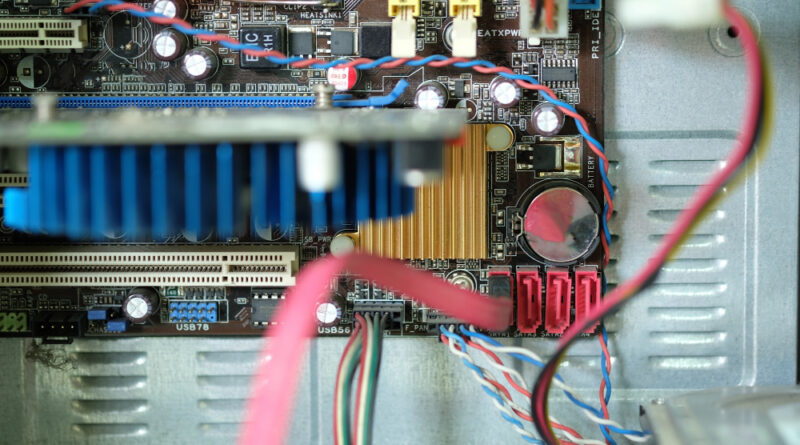Electrical Testing in Haridwar
Introduction
When it comes to electricity, safety should always be the top priority. Whether you are a homeowner, a business owner, or an industrial facility manager, ensuring that your electrical systems are in optimal condition is crucial. Electrical testing plays a vital role in identifying potential hazards, assessing performance, and preventing electrical failures.
In this article, we will delve into the world of electrical testing in Haridwar, exploring its significance, various testing methods, and how it contributes to maintaining safety and efficiency in electrical installations. So, let’s embark on this enlightening journey!
Electrical Testing in Haridwar: Understanding the Basics
Before we dive into the intricacies of electrical testing, let’s begin with the fundamentals. Electrical testing is the process of evaluating and inspecting electrical equipment, systems, and installations to ensure they comply with safety standards and function efficiently.
The Importance of Regular Electrical Testing
Electrical testing is not just a regulatory requirement; it is a matter of safety for everyone involved. Regular testing helps identify potential faults, aging components, or damaged wiring, reducing the risk of electrical accidents, fires, or equipment malfunctions. Additionally, it ensures that electrical systems perform optimally, minimizing energy waste and saving costs.
Types of Electrical Testing
- Visual Inspection: The first step in electrical testing involves a thorough visual examination of the electrical components and installations to identify any visible issues or damages.
- Insulation Resistance Test: This test measures the insulation resistance between conductors, preventing leakage currents and identifying insulation breakdowns.
- Earth Ground Testing: Earth ground testing ensures that the grounding system effectively dissipates electrical faults to the ground, preventing shocks and electrical surges.
- RCD Testing: Residual Current Devices (RCD) are crucial safety components. Testing them ensures they function correctly, quickly disconnecting power in case of an electrical fault.
- Load Testing: Load testing evaluates the capacity of electrical systems under various loads, helping optimize their performance and ensuring they meet operational demands.
Ensuring Electrical Safety at Home
Whether you are a homeowner or a tenant, electrical safety at home should be your priority. Let’s explore some essential tips to ensure your home’s electrical system is safe and efficient.
1. Schedule Regular Electrical Inspections
Regular inspections by certified electricians can identify potential hazards, loose connections, or outdated wiring that may pose safety risks. Aim to schedule an electrical inspection at least once every two years.
2. Keep an Eye on Circuit Breakers and Fuses
Circuit breakers and fuses protect your home from electrical overloads. If you notice frequent tripping or blown fuses, it may indicate underlying issues that require attention.
3. Avoid Overloading Power Outlets
Avoid plugging too many devices into a single power outlet. Overloading can lead to overheating, increasing the risk of electrical fires.
4. Upgrade Outdated Wiring
If your home has old or outdated wiring, consider upgrading to modern, safer alternatives. Older wiring may not handle the electrical demands of today’s appliances and electronics.
5. Childproof Electrical Outlets
If you have young children at home, childproof electrical outlets are essential to prevent accidents and injuries.
Electrical Testing for Commercial Establishments
For businesses in Haridwar, electrical testing is not only crucial for safety but also for maintaining smooth operations. Here’s how commercial establishments can benefit from electrical testing.
1. Compliance with Regulations
Commercial facilities must adhere to specific electrical safety regulations. Electrical testing ensures that your business meets all the necessary compliance standards, avoiding legal issues and potential shutdowns.
2. Preventing Costly Downtime
Electrical failures can lead to costly downtime for businesses. Regular testing helps identify and address potential issues before they escalate, reducing the risk of unexpected shutdowns.
3. Enhancing Energy Efficiency
Energy costs can be a significant expense for businesses. Electrical testing helps identify energy inefficiencies, allowing you to implement energy-saving measures and reduce operational costs.
4. Protecting Valuable Equipment
Businesses rely heavily on electrical equipment and machinery. Testing ensures that all the equipment is in optimal condition, prolonging their lifespan and minimizing the risk of sudden breakdowns.
Industrial Electrical Testing: Ensuring Smooth Operations
Industrial facilities in Haridwar depend on complex electrical systems to function seamlessly. Here’s why electrical testing is vital for the industrial sector.
1. Identifying Potential Hazards
Industrial environments are prone to more significant electrical risks due to the presence of heavy machinery and high-voltage equipment. Testing helps identify potential hazards and mitigate risks.
2. Preventing Costly Production Losses
Downtime in industrial operations can result in substantial financial losses. Regular testing ensures that electrical systems remain operational, minimizing the risk of production interruptions.
3. Ensuring Compliance with Industry Standards
The industrial sector is subject to stringent safety and performance standards. Electrical testing ensures that facilities comply with these regulations and maintain a safe working environment for employees.
4. Conducting Thermographic Inspections
Thermographic inspections use infrared technology to detect anomalies and overheating in electrical equipment, preventing potential breakdowns and fire hazards.
Common Electrical Issues in Haridwar and Their Solutions
Despite the best precautions, electrical issues can still arise. Here are some common electrical problems and how to address them.
1. Electrical Surges
Electrical surges can damage sensitive equipment and appliances. Installing surge protectors can help safeguard your devices from voltage spikes.
2. Faulty Wiring
Old or faulty wiring can lead to power outages and fire hazards. If you experience flickering lights or frequent circuit breaker tripping, consult a qualified electrician for rewiring.
3. Overloaded Circuits
Plugging too many devices into a single circuit can cause overloading and create a fire risk. Distribute electrical loads evenly across circuits or consider upgrading your electrical panel.
4. Tripping Circuit Breakers
Frequent circuit breaker trips may indicate electrical overloads or short circuits. Identifying the cause requires professional inspection and repair.
FAQs (Frequently Asked Questions)
- What is electrical testing? Electrical testing involves evaluating and inspecting electrical equipment and installations to ensure safety and optimal performance.
- How often should I conduct electrical inspections at home? Aim for at least one electrical inspection every two years to identify potential hazards and maintain safety.
- Can electrical testing save energy costs for businesses? Yes, electrical testing helps identify energy inefficiencies, allowing businesses to implement energy-saving measures and reduce costs.
- Why is industrial electrical testing essential? Industrial facilities rely heavily on electrical systems, and testing ensures smooth operations, prevents costly downtime, and identifies potential hazards.
- How can I protect my home from electrical surges? Installing surge protectors and ensuring proper grounding can protect your home from electrical surges.




